Trust is the basis for any relationship. Whether it is between you and your friends, or between one company working with another, even with governments sharing information with each other. Without trust, society cannot exist. Every type of a relationship requires some type of trust that is built through time.
But what is trust? And how does one go about establishing it with another entity? Trust is earned through a give-and-take between parties and demonstrated pattern of reliability. It is also relative, as everyone has a different level of risk appetite. A balance that is relative to the amount of risk the person is willing to take against the amount of reliability the other party has demonstrated in the past.
So how does this balance take place?
Clearly, if no one is willing to share or demonstrate anything about themselves, trust cannot be established. There has to be some level of vulnerability to even begin the initial stages of establishing trust. But at the same time, complete and full transparency also does not help establish trust. And this is because almost all relationships start off mutually distrustful. Trust is something earned. If given to someone arbitrary, that person could use that trust against you.
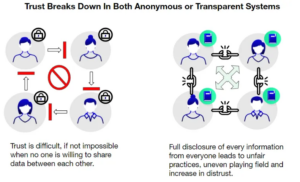
And in a way this balance of privacy and transparency to establish trust has been tipped in favor of one side to another throughout history. How many times have you or someone you know been burned by giving trust to someone who–knowingly or unknowingly–betrayed it? How many deals are broken between companies? How many government secrets have been compromised through leaks? Building trust is a gradual process, where one party shares something in hopes that the other party shares something of equal value.
But what if there was a way to share information without sharing information?
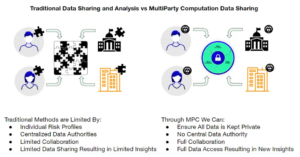
As we reviewed in other articles, multiparty computation allows for the computing of data even if the owner does not share the details around it. And in the example of sharing of data, this means any mutually distrustful parties can collectively allow the use of their data without sharing the details of data itself.
What does this mean in practice? At a high level, this means you can now reduce the weight of risk in the balance of establishing trust. Because you no longer have to expose your private data, the risk of that data being used against you is lowered. And this means you no longer require the same heavy weight for demonstrated reliability that you would need on the other side of the trust scale.
This is a game changer on many levels. Trust is the fundamental basis for any relationships between entities. With MPC, we now have the opportunity to change how this can be played.
In the example below, let’s say we have two financial companies that are competitors. They have a lot of secrets they would like to keep internal, but they do business with each other as a part of their overall practice. As a result of their business, there are many mutual clients. If there was a suspicious activity in one of their clients, having a single set of data they can analyze may not be enough. But what if both companies could share the use of their data together for forensic analysis without sharing the details of the data itself? This may lead to a far more comprehensive analysis.
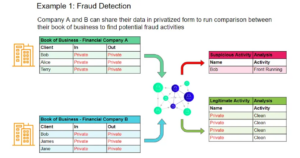
Another example is where multiple companies need to validate meeting of certain regulatory or compliance goals. But to compute the data, it requires exposing private information. Through MPC and Partisia Blockchain, a company will be able to validate meeting regulatory goals without exposing their data to the public.
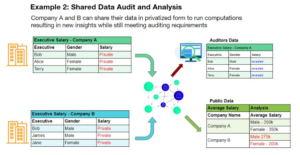
These are very simple examples of how companies can still work together without revealing their private data. And we have quite a variety of projects building on Partisia Blockchain that takes advantage of this new way of doing business.
CyberPeace Institute is working with Partisia Blockchain to help NGOs combat the issue of malware and ransomware by allowing NGOs to privately work with other parties who may be facing similar attacks. This allows NGOs to work together with others without reputation impact or exposing information that may create other vulnerabilities in their system.
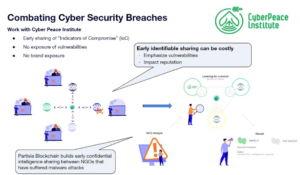
Monadi is working on helping companies comply with CSRD regulations that will impact over 50,000 companies in the EU. By 2025, companies will need to validate that they are meeting certain SDG goals, with the first goal being able to certify that there is no gender pay gap in their executives’ compensations. As the regulation matures, Monadi will be in a good position to help companies certify other SDG requirements without the need for the company to expose private data.
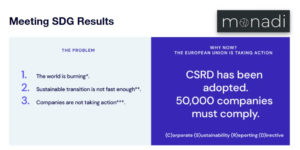
With a growing number of partners and integrators looking to solve the issue of trust, Partisia Blockchain is well positioned to help provide the solutions we need–whether it is to address the transparency in blockchains or to solve existing problems outside the blockchain space.
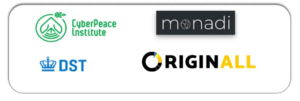
For additional insights on this use case, come and watch our Q&A session we did on this topic.
By creating a programming language that allows for developers to use MPC in a generic way, Partisia Blockchain Foundation has made the creation of applications that can harness the power of MPC for different use cases a possibility. Partisia has been at the forefront of providing private MPC solutions since 2008. And by layering this technology on top of an interoperable and scalable blockchain, Partisia Blockchain is now paving the way for anyone to create solutions that can balance privacy and transparency to build trust.
To learn more about different use cases or partner with us for solutions, please visit partisiablockchain.com, check out our Medium articles, development documentations or email us at build@partisiablockchain.com.
Ledgers are the primary ways settlements are recorded. The first double bookkeeping ledger system was recorded in use as far back as the 1300s. It is still the de-facto system used today to record transactions between entities.
Fast forward to 2008. Satoshi Nakamoto (pseudonym) was frustrated with the corruption due to the lack of transparency and centralized control of the traditional system. He proposed a transparent distributed ledger system that was immutable as a system of recording transactions. Thus Bitcoin was born.
But with all new systems, there is always room for improvements.
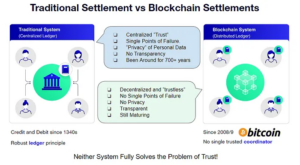
As discussed in our previous articles, full transparency does not solve the problem of building trust. In fact, privacy is a requirement in any trust relationship. For example, nobody would trust a credit card provider that revealed every purchase cardholders made just by someone having their credit card number. In a traditional blockchain space, every transaction is written in a public ledger. It would only require matching a wallet address to a name to see the full history of their transactions.
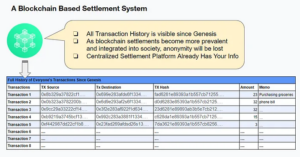
How can you have a blockchain that privatizes transactions and has enough flexibility to analyze and compute the data? Through integrating a proven technology into a scalable and interoperable blockchain.
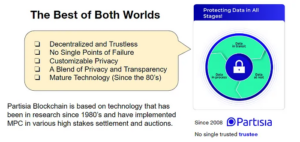
Developers can pick and choose which part of the data in the blockchain needs to be private and which can be public. All thanks to the Partisia Blockchain’s programmable MPC. A layer of governance can be enabled around the private data to allow for computation and access to select individuals. Those who access the data can also be audited transparently.
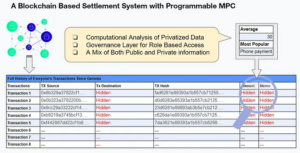
Now, even if someone has your credit card details, they will not be able to see your purchase history and your spending. If needed, a governance model can be created to ensure auditability and traceability to the system.
The importance is evident in our partnership with the International Committee of the Red Cross (ICRC). We partnered with the ICRC to build out a program for distributing aid through blockchain. One of their key requirements was privacy of the aid recipients. As they are a very unique organization, one of their key principles is in confidentiality and bilateral dialogue. The ICRC mainly operates in conflict zones and lack of privacy can mean life or death.
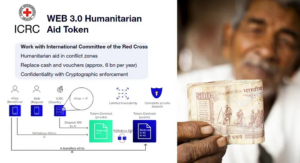
ICRC was able to solve their key challenge of privatizing the transactions of the stable tokens in the ecosystem thanks to Partisia Blockchain’s MPC. As shown above, the deposit of the funds from ICRC is kept private. As a result, transfers between the users are anonymous. To learn more, please watch our video of the overview of the solution here.
As blockchains become more prevalent, the need for privacy will continue to grow and take center stage. Various projects are already being built with private settlements in mind. We continue to speak with many organizations who prioritize the need for privacy in a blockchain solution.
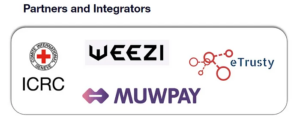
For additional insights on this use case, come and watch our Q&A session we did on this topic.
By creating a programming language that allows for developers to use MPC in a generic way, Partisia Blockchain Foundation has made the creation of applications that can harness the power of MPC for different use cases a possibility. Partisia has been at the forefront of providing private MPC solutions since 2008. And by layering this technology on top of an interoperable and scalable blockchain, Partisia Blockchain is now paving the way for anyone to create solutions that can balance privacy and transparency to build trust.
To learn more about different use cases or partner with us for solutions, please visit partisiablockchain.com, check out our Medium articles, development documentations or email me at bruce.ahn@partisiablockchain.com.
ZÜRICH, 12 April 2023. Partisia Blockchain Foundation proudly announces the appointment of Bakyt Azimkanov, an accomplished and award-winning professional, as the Head of Communications, effective immediately. This strategic hire supports the organization’s expansion plans and underscores its commitment to increasing its voice and raising its awareness worldwide.
A former Head of Communications at the Cardano Foundation, Bakyt joins the organization with decades of experience in strategic communications, integrated public relations campaigns, branding, and press outreach programs across blockchain, financial services, and technology.
In his new role, Bakyt will develop and oversee the implementation of a communications strategy to raise Partisia Blockchain Foundation’s profile and drive adoption of the fourth generation blockchain, which features unparalleled multiparty computation technology.
As a trusted counselor to the leadership team, Bakyt will provide expert advice on unified communications initiatives to increase awareness and share of voice. He will also advise on leadership positioning strategy, execution tactics, and implementation methodology.
Kurt Nielsen, President of Partisia Blockchain Foundation, expressed his excitement for the appointment, saying, “We are thrilled to enlist the rich expertise and visionary leadership of Bakyt, who boasts a remarkable array of proficiencies and extensive experience in steering value-driven purpose-led communications initiatives. We are confident that his unique skill set will be instrumental in bolstering the standing of Partisia Blockchain within the global blockchain arena. With unwavering conviction, we anticipate his invaluable contributions in advancing our ethos and perpetual metamorphic objectives.”
Before joining Partisia Blockchain Foundation, Bakyt held numerous senior leadership positions at major global organizations, including leading transformational programs at the Cardano Foundation. He led its positioning overhaul, ICAD-nominated brand refresh and built its brand, marketing, community management and communications functions.
Outside the blockchain industry, Bakyt previously led the global media relations and social media at EY (Ernst & Young), a professional services organization, focusing on strategy and transactions, namely mergers and acquisitions, divestments, and private equity, where he played a pivotal role in securing and maintaining a number one share of voice in the media. Bakyt is also one of the founding partners of Syyx, a Web3 full-suite marketing and communications boutique set up by former Cardano leaders.
Bakyt is a trained journalist with a Master of Arts degree in Business and Finance Journalism from City University (United Kingdom), a second Master of Arts degree in Media Studies and Communication from the University of Aarhus (Denmark), and a Bachelor of Arts degree in Journalism and Public Relations from the American University of Central Asia (Kyrgyz Republic).
Partisia Blockchain Foundation is honored to welcome Bakyt Azimkanov to its leadership team and looks forward to his contribution in elevating the company’s communications function to new heights.
About Partisia Blockchain Foundation: Partisia Blockchain Foundation brings unparalleled opportunities by empowering privacy-preserving, interoperable and sustainable innovation for fairness and transparency. It fuels the most secure and efficient networks to solve global problems. Distilled with more than 30 years of rigorous research, Partisia Blockchain future-proofs solutions, solves tomorrow’s challenges by powering fair, secure, distribution of benefits. While preserving privacy and confidentiality, it brings accountable, transparent and decentralized governance. Learn more: www.PartisiaBlockchain.com
Stay updated: Website • Twitter • Discord • Telegram • LinkedIn • Facebook • Instagram • GitLab • Medium • YouTube
In a traditional asset trading platform, front running is defined as the illegal practice of placing a trade based on advanced non-public knowledge of an upcoming trade which can impact prices. As shown in the example below, a broker can take advantage of a situation when he or she gets a large order by one of their clients. Since they know this order will impact the price of the asset, they place their own personal order ahead of their client’s order. Then, they place the client order, raising the stock price. Once this is done they will sell their own shares to profit off their clients order.
Another term used often is insider trading, which is based on a very similar practice of using information only they have access to in order to gain an unfair advantage over others.
In the Web3 space, everything is transparent and, ironically, revealing too much information can also create these situations. An example of this is front running on a decentralized exchange (dex) that you may have already heard of. This type of a front running is possible through the combination of having total transparency in the blockchain along with how Ethereum (and many other blockchains) prioritize transactions in a node’s mempool.
In this particular example, an attacker (usually a bot) scans the mempool to see a particular scenario that they can take advantage of. Scanning the mempool, they look for an opportunity to insert in a bid at a lower price but higher gas than another large bid already in the mempool.
Once their bid completes, they wait for the larger order to go through, raising the price of the asset. Then they place a sell order at a higher price than the buy order he placed ahead of the larger order, and pockets the difference. All this is happening in a blink of an eye, making it impossible for any normal person to be able to recognize they are being taken advantage of.
But what if we could make the orders private? This prevents the attacker from being able to read the auction details in the mempool, and making the bot unable to identify a situation to take advantage of.
Through multiparty computation (MPC), details can be kept private while still computing the winner. In the situation of this dex, the results of the prices are not revealed until the bids are completed, ensuring that attackers cannot gain any advantageous information ahead of time.
The team in Partisia has already provided solutions to solve this issue in multiple scenarios. From governments to OTC trading platforms, they have been trusted to run high stakes auctions in different levels and through enabling this technology on a blockchain, we are giving everyone the power to solve the problem of ensuring integrity in the bidding process.
For additional insights on this use case, we recommend viewing our Q&A session on this topic.
By creating a programming language that allows for developers to use MPC in a generic way, Partisia Blockchain Foundation has made the creation of applications that can harness the power of MPC for different use cases a possibility. Partisia has been at the forefront of providing private MPC solutions since 2008. And by layering this technology on top of an interoperable and scalable blockchain, Partisia Blockchain is now paving the way for anyone to create solutions that can balance privacy and transparency to build trust.
To learn more about different use cases or partner with us for solutions, please visit partisiablockchain.com, check out our Medium articles, development documentations or email me at bruce.ahn@partisiablockchain.com
As the first quarter of 2023 draws to a close, Partisia Blockchain is celebrating a successful start to the year. Our team participated in the renowned Paris Blockchain Week, where we showcased our latest solutions, including our revolutionary private voting technology. Additionally, we celebrated International Women’s Day with our Paris Hackathon winner, Thousand Faces, a community-driven investment platform that provides inclusion and accessibility for female and diverse founders. We are committed to supporting Thousand Faces’ goals and are thrilled to witness our network being utilized to address societal challenges. We also welcomed our new Head of Community, Tiago Serôdio, who will provide expert guidance on scaling and diversifying our community. At Partisia Blockchain, we remain committed to driving innovation, empowering our community, and delivering cutting-edge solutions.
We are delighted to announce the appointment of Tiago Serôdio as the Head of Community at Partisia Blockchain. With over 10 years of experience in building and running communities, Tiago’s appointment underlines our commitment to engaging our community and achieving our growth objectives. He brings a wealth of expertise in marketing campaigns and community management from his notable work at Cardano. We are excited to have Tiago on board and look forward to collaborating with him to scale and diversify our community. Additionally, we are thrilled to share that our team and collective skillset is expanding, with more Web3 professionals set to join. Stay tuned for more updates!
First and foremost, we were happy to meet our community members in Paris at the end of the month. Visitors of our booth during the Paris Blockchain Week were treated to exclusive merchandise and met with our delegation. Our community members were very supportive and active during the voting for the inaugural Paris Blockchain Week Awards. This afforded us to showcase one of our key solutions — private voting. Thousands have cast their votes and had an opportunity to experience our zero-knowledge voting. Therefore, we start our Solutions Spotlight campaign with a focus on private voting. Each week we will highlight one of our solutions and our new Head of Community, Tiago Serôdio, will lead a series of Spotlight AMAs and Q&As. The first one took place on 30 March 2023 focusing on private voting. The next ones will focus on secret surveys (6 April 2023), front running (13 April 2023) and privatized settlement layer (20 April 2023). Stay tuned!
In March, development work was mostly focused on improvements to key infrastructure functions. From fixing bugs to improving various invocations, we have been continuing to improve upon existing functionality.
In April, we plan to launch our first version of our Eth pricing Oracle on our testnet. This is an important milestone for our mainnet where BYOC transfers will now accurately reflect actual prices. This will both benefit our node operators to get more accurate fee distributions on their BYOC rewards, as well as allow for more accurate transferability on our Hermes bridge.
Website • Twitter • Discord • Telegram • LinkedIn • Facebook • Instagram • GitLab • Medium • YouTube
Voting is an integral part of the election process. It is important to have transparent and tamper-proof voting systems that can be trusted through no single centralized authority whether it is selecting your class president in high school, voting as a shareholder in a listed company or electing government officials.
Through the distributed ledger system, we have a way to ensure transparency where all votes can be logged in an immutable record system. Each voter is accounted for in the blockchain. When the vote is cast, both voter ID as well as who or what they voted for is also recorded in a permanent way. But what about the privacy of the individuals and whom they casted their votes for?

This is one of many challenges Partisia Blockchain solves though the use of cryptography and mathematics. Through multiparty computation (MPC) technology, our solution shows verifiable proof of an accurate election without revealing any details about the voter. But how does this work?

Multiparty computation is a technology created in the 1980s that allows computation of results while keeping their input private, enabling trust between mutually distrustful parties. In the voting example, we use shamir’s secret sharing to have the smart contract create a random line that intersects with the vote details that have been vectorized. In the example below, candidate 1 is represented by 0 and candidate 2 is represented by 1. Four random points are chosen from this line, and each point is sent to a separate MPC node for computation. Through these lines, we can compute on finding the winner without revealing who each person voted for.

For additional insights on this use case, come and watch our Q&A session we did on this topic.
By creating a programming language that allows for developers to use MPC in a generic way, Partisia Blockchain Foundation has made the creation of applications that can harness the power of MPC for different use cases a possibility. Partisia has been at the forefront of providing private MPC solutions since 2008. And by layering this technology on top of an interoperable and scalable blockchain, Partisia Blockchain is now paving a way for anyone to create solutions that can balance privacy and transparency to build trust.
To learn more about different use cases or partner with us for solutions, please visit partisiablockchain.com, check out our smart contract examples or email our head of developer relations at bruce.ahn@partisiablockchain.com
The shortest month of the year was a time of steady progress. The first voting on blockchain being the highlight, updates to our staking tools were also February’s highlights. Team members from Denmark, Germany, Portugal, Switzerland, US and the United Arab Emirates convened in Aarhus for a strategic sprint meeting. In-person gathering in Central Jutland took the pulse of the current progress to date against the roadmap, outlined the plans for the remainder of the year and finalized the near-term strategy of key functions. Stay tuned for exciting new developments and be the first to know.
The first-ever voting on Partisia blockchain went live in February. The inaugural voting on our blockchain is the first of many applications of our technology. This vote showcases the untapped potential of the secure, transparent and privacy-preserving ZK technology for voting. We teamed up with the Paris Blockchain Week to power their début Awards in selecting the crème de la crème of the blockchain industry. The voting is on Parti.com, a unique social network run on our blockchain. Voting on blockchain allows users to securely vote on chain utilizing our tamper-proof technology.
Users can cast their votes for their nominee in each category, except People’s Choice Award and Prix du Jury, until 23 March 2023. The Award ceremony at the Carrousel du Louvre will take place on the last day of the Paris Blockchain Week. The Partisia Blockchain team will be in the French capital attending Europe’s largest blockchain industry gathering. We will be announcing a few things on the ground. So, rendez-vous à Paris during 21–23 March 2023!
As we welcome the spring, we will be also initiating a few community initiatives in March and rolling out various programs. We hope to involve our community regularly and host regular Q&A sessions, attend community-led meet-ups and introduce incentives. More details will come during this spring.
Last month, we released version 2 of our staking site. As part of the revamp, we released browser.partisiablockchain.com alongside a major change. This allows the community to stake both locked and unlocked tokens. In this release, we also updated our staking instructions and held two AMAs (instructions and reward model).
In the age of GDPR and tighter regulatory environment, we continue to show our leadership in the compliance space by launching jurisdiction management to ZK smart contracts. This allows developers control over where in the world the secret data of your contracts reside, ensuring your business can meet regulatory requirements even in the blockchain space.
In testnet, transferability of BYOC as well as MPC tokens are now enabled. Now you will be able to create contracts for transferring assets across accounts. You can also begin testing our unique swap capabilities on our testnet. We highly encourage all developers to try this out.
In the node community news, we made improvements in the BPOC contract. Active committee members, which were dropped due to server issues during a new committee vote process, now can re-enter the committee the following month without the need for a new committee vote.
Website • Twitter • Discord • Telegram • LinkedIn • Facebook • Instagram • GitLab • Medium • YouTube
Hello Partisians,
We had an amazing January to start the year 2022 and are proud to share some of the big updates here with you today.
Last week, we added another 64 block producers to the network, bringing the network to 128 global validators. At the time of writing, Partisia Blockchain mainnet beta has finalized 452,927 transactions across three shards. The network run time has been 100% with zero outages. This is a major accomplishment and we’re excited to add another node operator committee and stress test the network during February 2022.
On 27 January 2023, Partisia Blockchain Co-Founders Kurt Nielsen, Peter Frandsen, and Brian Gallagher hosted the first ever video AMA for the Node Operators. It started with a thorough presentation from Kurt regarding the different nodes the network can run, the built in incentives, and near time road map. After the presentation, the team answered questions from the community.
The much anticipated public sale details are finally coming together! As the official mainnet genesis block is currently planned for March, the public sale will occur shortly after. There are a few variables to consider regarding the actual mainnet launch time and the Foundation remains flexible on the exact launch date based on the following:
Public Sale Platform: Partisia Blockchain will host its own public sale on our own platform. You must complete kyc.partisiablockchain.com to be eligible for the sale. Beware of any fake sales or scam attempts. The sale will be conducted from the official partisiablockchain.com website and nowhere else.
Price: US$0.40/MPC token
Vesting: Two-year quarterly unlock starting at TGE
Sale Quantity: Limited- minimum cap US$5 million, maximum cap US$40 million.
Our Twitter account was verified with a blue check mark by Twitter. This is quite an accomplishment for such an early stage project to get that type of recognition. Please make sure to give us a follow on Twitter if you have not already done so.
Over the course of the next week, we will begin to open source some of our libraries and launch bug bounty campaigns with our partner Immunefi. The details of this campaign will come in a separate blog post.
We have opened a new, official YouTube account and produced a short film showcasing our project. Be one of the first viewers here:
We have launched our official discord channel! Here is an invite link for you to join and get integrated into our bustling community: https://discord.gg/JEx7H8XY
It is going to be a high stakes month during February as we test our infrastructure with open source bug bounty campaigns. Beyond that, we are growing our community. With the new discord server now in operation, we plan to onboard tens of thousands of new users to the community this month. Please get involved by joining the Discord. You can also expect another AMA and more video content.
Partisia Blockchain Team
Website • Twitter • Discord • Telegram • LinkedIn • Facebook • Instagram • GitLab • Medium • YouTube
Partisia Blockchain’s privacy-preserving technologies support the ICRC in providing humanitarian aid to global crisis zones.
On December 2, 2022, at our first Hackathon (the “PartiHack”) in Paris, France, Partisia Blockchain and the International Committee of the Red Cross (ICRC) announced our partnership to harness blockchain-based technology to enable aid distribution to global crisis zones in a way that is more efficient and safer for recipients. We were proud to be able to present the working prototype of this system and to demonstrate how this technology could be used in conflict zones to ensure a high degree of privacy and data protection for relief distributions.
This amazing collaboration offers a vision of a better mechanism for providing assistance to those most vulnerable to armed conflict and violence around the world. The stablecoin we are developing in partnership with the ICRC could pilot a new way of providing support to these victims by combining the advantages of public blockchains with the privacy protections of Partisia Blockchain’s advanced multi-party computation technology.
We are incredibly excited to begin applying Partisia Blockchain’s leading technologies to create a pioneering solution with the ICRC to explore and research how humanitarian cash and voucher assistance programs can benefit from our technology. This is a breakthrough in the real-world use cases of our blockchain.
The current partnership provides a key example of the power of Partisia Blockchain’s singularly scalable, privacy-protecting, multi-party computation technology. This model, first discussed at TOKEN2049 in Singapore, also served as a key source of inspiration for developers participating in Partisia’s Hackathon, which awarded several significant grants to projects judged among the best submissions.
More on those here!
Stay updated: Website • X • Discord • Telegram • LinkedIn • Facebook • Instagram • GitLab • Medium • YouTube